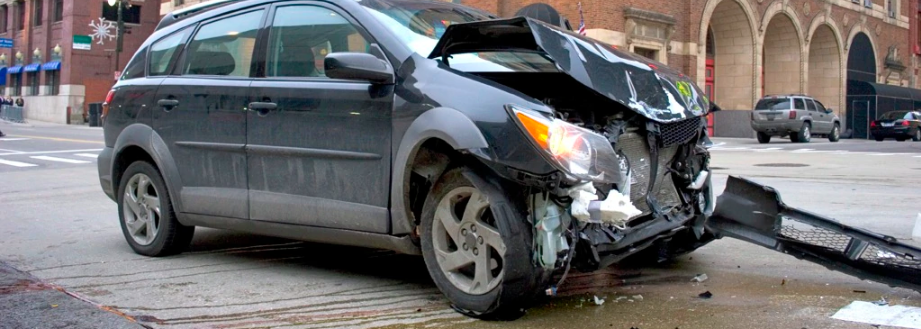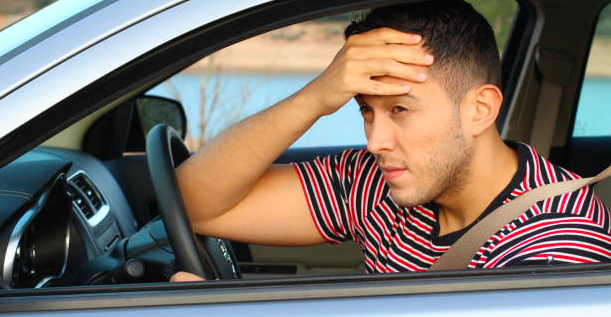Listen to the 9-minute podcast version
Watch a 1-minute introductory video
Addiction is like a car crash.
It can harm or kill the driver and hurt anyone else along for the ride. The good news is that, with the right driving techniques, we can be trained on how to avoid a crash.
And we can learn how to prevent addiction.
Car accidents happen frequently these days, but there are things we can learn to avoid them. Such as, when we get into a spin, to turn into the skid rather than doing nothing. And a second tip is to look where we want to go rather than stare where our momentum is taking us.
Some spins happen suddenly, but this article is about a different kind of skid that may take months or even years to play out. We will learn 10 stages in the journey toward addiction. Which gives us 10 opportunities to detect impending danger, and 10 chances to steer into the skid..
Life Happens, and it’s Not All Good
Sometimes, life doesn’t go the way we want, and we don’t handle it well. But, to live in a healthy manner, we must be able to deal with life when things go wrong. We need a healthy perspective. If we learn to turn into the skid—face our problems—and look where we want to go—rather than toward the crash—we can not only get through, but get better. And we can learn to live that way.
Stage 1. Life happens. We face a trial in our lives. Or insecurity, stress, or depression come along. Perhaps, our quest for pleasure just doesn’t work. All of that is part of life.
What to Do: Adopting the right perspective allows us to deal with negative circumstances and feelings. Don’t run away; steer into the skid and learn to deal with how life happens. Ideally, see this as a wake-up call, and become intentional about developing a resilient and healthy lifestyle.
We Allow “Stinking Thinking” to Slowly Set In
Without noticing, our thinking gradually becomes less healthy and more toxic. In Recovery, that’s called “Stinking Thinking.” We become increasingly self-absorbed and allow our emotions to take over. We can correct this by finding our why—compelling benefits of living the right way. This is how we look in the direction we want to go rather than skidding out of control.
Stage 2. Self-pity, worry, or other self-directed thoughts enter our minds more and more often.
What to Do: Develop self-awareness. Count our blessings, even if we don’t feel like it. Instead of staring into the gloom, turn our gaze to where we want to go in life. Look to God.
Stage 3. Impulsivity increases. We start doing things just because they make us feel better, at least for a while. We don’t think these activities through or contemplate the consequences.
What to Do: Face our issues, and count the cost of our actions. Imagine our behavior is being recorded and “play the tape through” to the end to anticipate what will result from our choices.
Stage 4. Rationalization becomes our self-defense mechanism to avoid facing problems head on.
What to Do: Practice ignoring the self-lies we all tell ourselves, and practice it some more. Go to a quiet place and carefully think through what’s really at stake with the decisions we are making.
We Avoid Getting Help, and the Danger Escalates
We multiply our issues by doing the opposite of what we should. Rather than turn into the skid and look where we want to go, we hide from our issues and obsess on where we are heading. And when all seems dark, we hide even more, and do whatever we can to dull the pain.
Stage 5. Isolation becomes our self-defense against the perceived hurts or judgments of others, and we avoid people in order to avoid facing our own behavior.
What to Do: We must fight the compulsion to hide from our problems and reach out instead. It is critical that we talk to someone we can be open and vulnerable with and, ideally, join a recovery group. We must establish a support structure and get some accountability into our lives.
Stage 6. Denial becomes ingrained as we ignore our issues and shift blame away from ourselves.
What to Do: We are in danger if we keep blindly numbing the pain. Unless God or another person intervenes or we muster the courage and humility to make a drastic change, a crash is imminent.
We Make Unhealthy Changes in Our Lifestyle
With our self-defense mechanisms weakened by negative thinking patterns, we no longer know what to do to stop the skid. We adjust our habits in ways that ingrain our compulsive behaviors. We turn to things other than God to address our issues. In our distorted thinking, our substance or behavior of choice is no longer the problem—it’s now the solution!
Stage 7. Temptation becomes harder to resist, and we find ourselves giving in more often.
What to Do: Become aware of and understand our triggers, which are the circumstances that lead us into temptation. Develop and practice ways to interrupt that behavior before we take the next step. When we feel tempted, pause to pray for help early and often.
Stage 8. Procrastination becomes a habit as we put off any first steps on working on our issue.
What to Do: Make a conscious choice to take a positive step. Each time we find ourselves avoiding what we know we ought to do, simplify the challenge and focus only on taking the next right step.
Stage 9. Compulsion becomes more ingrained, and we give less and less consideration to the bad habits we are developing.
What to Do: Personal will power is not enough anymore; we need help! Unless we allow God back in our lives, and surrender our will to him, we are heading for a crash.
We Crash, and Addiction Sets In
In a crash, the driver is not the only one harmed; people with them are as well. Once in addiction, it will take a serious life-change to get better. Sometimes we need to hit bottom before we become willing to turn things around. For many of us, hitting bottom is the best thing that could happen.
Stage 10. Addiction, or relapse, catches up with us, and we crash.
What to Do: Going into a recovery or treatment program is now likely a necessity to get our life back together. And we must pray for God to help us along our spiritual journey back to wellness.
Addiction is a disease and, without a vaccine, we will continue to get sick. The behaviors of addiction—the escalation of our compulsive, harmful habits—are a crash waiting to happen.
Unless we take corrective action.
Question: Pick a negative behavior in your life; in which of the 10 stages above are you now?
Action: Read the third and final article in this series here: “How to Prevent Addiction (Part 3).”



